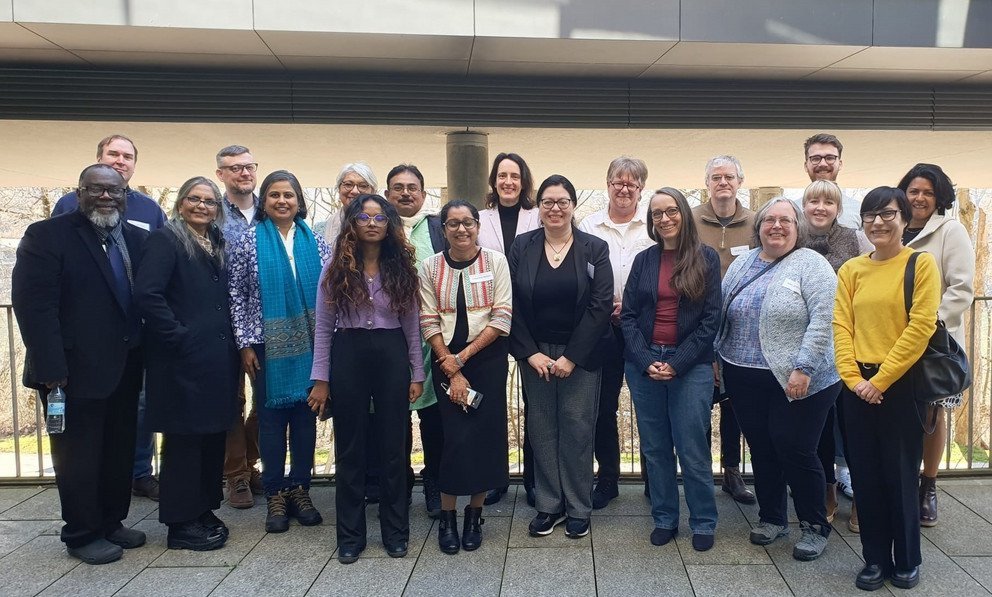Thank you to everyone who contributed to the success of the event! It was a pleasure to present such a varied program - with insightful contributions and stimulating discussions that enabled a valuable exchange of ideas and opened up new perspectives.
Academia Meets Hollywood: The University on Screen
On March 20 and 21, 2025, an international conference took place at the University of Passau, exploring how the academic world is portrayed in films and television series. Over the course of two days, researchers from India, the United States, Europe, and China engaged in discussions on how universities, research, teaching staff, and students are represented in screen productions. The conference was organized by Professors Dr. Daniela Wawra and Dr. Lucia Krämer from the Department of English Studies. It offered fascinating insights into the cultural differences and overarching commonalities in how academia is depicted across various cultures – and how these representations relate to real-life academic experiences.
While a particular focus was placed on U.S. and Indian productions, European and Chinese films and series were also thoroughly examined. The presentations and discussions revealed that the academic world on screen is rarely characterized by intellectual work or learning processes. Instead, narratives often center around personal development, social dynamics, and interpersonal conflicts. When knowledge and intellectual breakthroughs do come into play, they are typically used to ward off existential threats, solve crimes, or crack complex mysteries. “As mainstream films are primarily intended to entertain, scenes of concentrated research in archives or lengthy study sessions in libraries rarely offer dramatic potential. Tension and humor tend to arise from emotional escalation that resonates with audiences,” explains Prof. Wawra. When learning and research are depicted, they are often removed from offices and seminar rooms – taking place instead in exotic or action-packed settings. “Rather than academic debate in lecture halls, we might see characters embarking on adventurous expeditions in remote locations. This certainly adds drama and excitement – even if it bears little resemblance to academic reality,” Prof. Wawra adds. Yet, metaphorically, these portrayals can reflect certain truths: like in a mystery thriller, academic work involves piecing together fragments of information, making creative connections, and occasionally experiencing the thrill of discovery.
Another key theme was the depiction of university life as a kind of marketing for higher education: in both Hollywood and contemporary Indian cinema, the university often appears as a setting for exuberant parties, wild escapades, romantic relationships, and the pursuit of the perfect partner.
In addition to analyzing recurring cinematic archetypes and tropes, the conference also addressed the political dimensions of the films and series discussed – viewed through an intercultural lens. Participants explored how social themes such as class background, race and ethnicity, gender roles, and power structures are reflected in the context of inclusive and exclusive practices within academia. Issues of discrimination and social inequality took center stage, alongside cinematic engagements with discourses on emancipation and self-actualization.
Prof. Krämer observes: “Although the productions we analyzed were from different countries, certain trends clearly emerged in their treatment of political topics. Mainstream productions, for example, tend to downplay systemic critique of the education system in favor of emphasizing individual responsibility, thereby reinforcing dominant discourses. At the same time, many films do reflect, sometimes quite critically, the pressure exerted on universities by neoliberal ideologies and national governments – whether directly or indirectly.”
Accordingly, another major point of discussion was the university’s role in society. Films and series contribute to public perceptions of academia. They can serve as a vehicle for critical reflection on real-world developments and contribute to a deeper understanding of the value of education, research, and scientific inquiry. However, this potential remains largely underutilized. The conference concluded with a compelling appeal to recognize the university as a vital space for free thought and open discourse – essential for fostering critical thinking and sound judgment, particularly at a time when democratic values are under increasing pressure around the world.


